If you deal with depression or anxiety, you know all too well how frustrating it can be to find a treatment that gives relief.
I know firsthand how difficult that can be because I too have dealt with both anxiety and depression at different times in life.
I am painfully familiar with what it feels like when you are anxious but can’t figure out why, have panic attacks that seem to come out of nowhere, or just want to hide in your house because taking a shower, getting dressed, and dealing with the world feels impossible that day.
If you’re like me, you would do anything to get rid of those feelings and live a “normal” life.
Let me show you some tips that can help you feel better and get depression and anxiety under control!
Reframing Anxiety And Depression
For years, anxiety and depression were thought of as mental disorders.
It was believed (and still is by many health care providers) that anxiety and depression were caused by a genetic tendency of certain people to have an imbalance of brain chemicals.
But many doctors at the forefront of this subject have reason to believe otherwise.
There is evidence that for some, anxiety and depression may actually be symptoms pointing to underlying issues and not mental disorders at all.
Why Is This Important?
Looking at anxiety and depression through a different lens gives hope that it is possible to find the cause for each individual and then a cure.
No longer do we have to try to accept that the best we can do is take a medication with a list of side effects that may or may not offer some relief.
And we don’t have to accept that this is something we will struggle with for the rest of our lives.
I don’t know about you, but I’m all for finding the cause and a cure!
Common Health Issues That Could Be Causing Anxiety And Depression
So, you may be wondering, what is the cause of anxiety and depression?
The simple (and not so simple) answer is that it is different for each person.
Some people find themselves struggling because they have been under extreme stress for a long time. Others deal with loneliness, an underlying medical issue, or undiagnosed food intolerances.
There is no single cause, although some believe that depression and anxiety may serve as a protective mechanism or warning sign that something is not right.
The one thing that most people who deal with anxiety and depression have in common, no matter the cause, is that they almost always have higher inflammatory markers.
Wondering how anxiety and depression and inflammation are linked?
Read on!
This post may contain affiliate links, which means I’ll receive a commission if you purchase through my links, at no extra cost to you. Please read full disclosure for more information.
9 Often-Missed Causes Of Anxiety And Depression
1. Poor Diet

Foods that are high in sugar, unhealthy fats, and full of preservatives wreak havoc on the body and mind. People who regularly consume these foods and food-like substances do not get the proper nutrition needed for a body to function optimally.
Those that eat the Standard American Diet often have blood sugar issues, vitamin deficiencies, weight problems, and degenerative or chronic health conditions, along with anxiety and depression.
In today’s world, it is not uncommon for people to be confused about what to eat and what not to eat. There are a number of diets, food plans, and lists that tell you to eat this, not that.
It’s no wonder people are so confused!
Even a trip to your doctor may not give you the correct information regarding nutrition.
So what’s an anxious and depressed woman with high levels of inflammation to do?
Solution: Eat simple, healthy foods!
Choose foods like grass-fed meats, veggies, nuts, and fruit. It may seem like a simple (boring?) way to eat, but after changing your diet you will notice you start to crave healthy foods.
I know, that sounds weird, but I promise it’s true!
Need a few good recipes to get you started? Here are a few of my family’s favorites!
2. Blood Sugar Swings
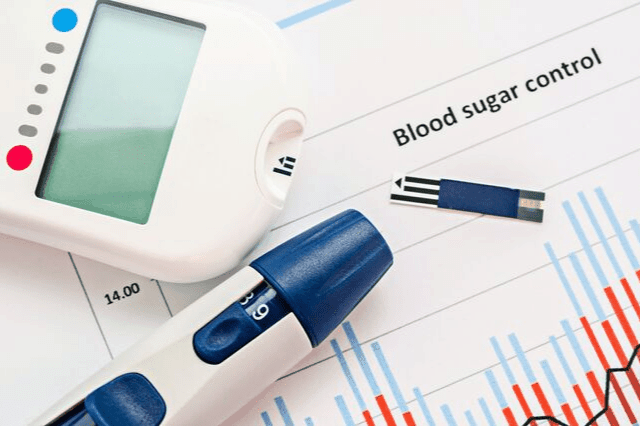
There are many things that affect blood sugar levels, some of which include diet, stress, medications, and other health conditions.
No matter the cause, if blood sugar levels fluctuate outside of normal ranges it can cause inflammation.
The fluctuation and inflammation can be a cause (or at least lend to) anxiety and depression.
Solution: Eat well, move often
Make healthy food choices, add some movement to each day, and rest when needed.
*If you are on medications be sure to see if they list blood sugar issues as a side effect.
*Feel like stress is causing blood sugar troubles? Consider starting a self-care routine that incorporates yoga, meditation, or deep breathing practices to help lower stress levels.
3. Food Intolerance
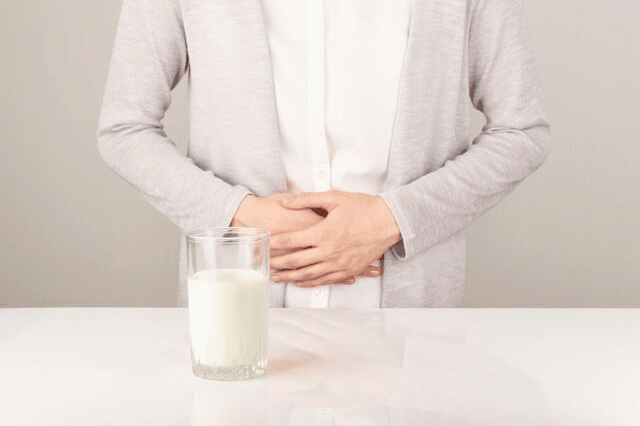
If you’ve read anything from natural health practitioners or even health bloggers, you’ve probably heard about food intolerances.
This is not the same as a food allergy.
If a person has a food allergy that typically means that when they eat (or, in the case of severe allergies, are around) a certain food, they have concerning symptoms that may come on quickly and range from stomach upset to anaphylactic shock.
Intolerance to food means that a person can eat (and be around) the food, but may notice symptoms such as a stuffy nose, an upset stomach, headache or migraine, or generally not feeling well after eating.
Many people with food intolerances also report symptoms such as hives, eczema, or symptoms similar to that of irritable bowel.
The concern with food intolerance is that, not only do certain foods cause very uncomfortable symptoms, but eating them repeatedly can cause or lead to inflammation.
And as we know, inflammation can lead to anxiety, depression, and other health issues.
Common Food Intolerances
A person can have an intolerance to almost any food but these are the most common
- Gluten
- Dairy
- Soy
- Eggs
- Corn
- Nuts
- Shellfish
Solution: Discover if you have food intolerances
- Elimination Diet- The easiest way to find food intolerance is to keep a food journal, remove the suspected offender for 6-8 weeks and then reintroduce it. If you have a return of symptoms, you most likely have an intolerance.
- Food Allergy Profile- This is a blood test that measures the IgE allergy response to specific foods.
4. Leaky Gut
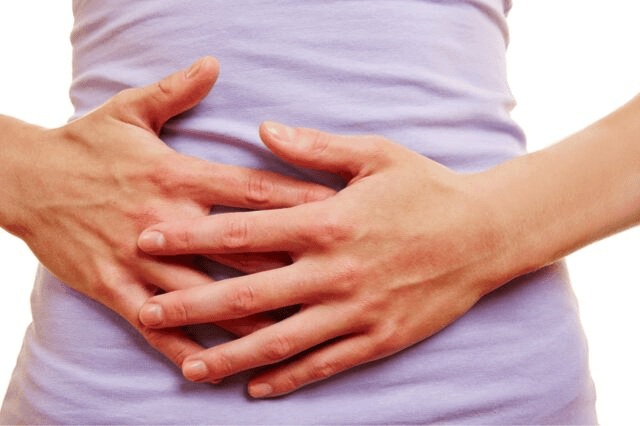
Having a healthy gut is essential to good health.
It is estimated that 75% (or more) of your immune system is found in the gut and around 90% of serotonin production.
If your gut is not healthy you can experience skin issues, hormone imbalances, digestive troubles, and of course, anxiety and depression.
There is also a link between having poor gut health, inflammation, and chronic disease.
So, what is leaky gut you ask?
Leaky gut (or leaky gut syndrome) is also called increased intestinal permeability.
Eating foods that you have an intolerance to, stress, toxins, and sneaky infections can all cause damage to the intestinal wall.
What this means is that, while normally the intestinal wall is somewhat permeable and allows micronutrients to pass, if you have a leaky gut there has been damage to the intestinal wall and this lets much larger substances pass through.
These larger substances (like food particles and toxins) are released into the bloodstream and then the immune system attacks them.
Solution: Heal your gut!
To do this you are going to want to take these 4 steps:
- Remove all foods that are inflammatory– use a food journal and/or allergy testing to help identify inflammatory foods
- Clean up the gut- eliminate gut infections such as candida, SIBO, or parasites. Many use products like oregano oil, Pau D’Arco, or Tumeric to eliminate gut infections.
- Repair gut damage– repair the natural lining by using food and supplements such as bone broth, collagen, Cod Liver Oil, and L-Glutamine
- Add good bacteria– be sure to include good bacteria to help balance and repopulate the gut.
While it is definitely possible to achieve a healthy gut without medical help, a knowledgeable natural health practitioner or functional medicine doctor can be a great source of help and guidance.
5. Anemia
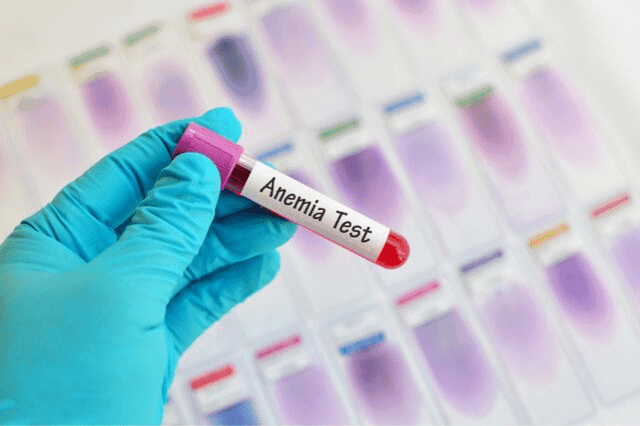
It is estimated that 1 out of every 5 women has iron-deficiency anemia. In addition to causing fatigue, if you have low iron levels you have a much higher risk of depression and anxiety.
In fact, iron deficiency can present with symptoms of anxiety, depression, and irritability.
Solution: Have a full iron panel blood test performed
It is common for a doctor to only run one or two iron tests, usually in addition to a CBC or other routine blood work.
The problem is that this doesn’t give a complete picture of what’s going on.
To get all of the info you will need to ask them to order a test that includes ferritin, serum iron, % saturation, and TIBC.
If you are more of a DIYer you can self-order this information too.
If results come back low there are natural options and supplements you could choose.
Some opt for a food-based supplement and others find success by incorporating foods such as liver into their diet (if you can’t choke down liver you could always opt for capsules).
Another option is to choose homeopathic remedies which have proven to be quite helpful by themselves or in addition to other supplements.
6. Low Vitamin D Levels

Did you know, Vitamin D is actually considered a hormone and every tissue and system needs it to function properly? It’s true!
If you live in a northern climate, have darker skin, don’t get outside and expose a large percentage of your skin regularly (most of us don’t), have leaky gut, a sluggish liver, or don’t take a supplement with the proper co-factors you may not have optimal levels or be processing it properly.
This means that you have a good chance of having low Vitamin D levels.
And having less than optimal levels has been linked to a higher incidence of anxiety and depression.
Solution: Have Vitamin D levels checked and take appropriate action!
It is important to have your levels checked first because while most people are deficient, that is not true for everyone.
If you find your levels are low you have a few options
- Get outdoors!– If you live in a place where the sun is abundant the best thing you can do is go outside and enjoy the sun. Be sure that a large amount of skin is showing (like wearing a bathing suit) and that you don’t stay out too long. Sunburns aren’t what you’re going for here.
- Eat foods high in Vitamin D– adding foods that are naturally high in Vitamin D can help raise levels and nourish your body. Consider adding fatty fish (especially salmon, herring, and sardines), Cod Liver Oil, and beef liver.
- Add supplements– if you can’t get enough sunlight and eating fish or liver isn’t for you, there are supplements that can help. Food-based supplements such as Cod Liver Oil or liver capsules are best because they naturally contain many of the co-factors such as Vitamin A, K-2, and zinc. Some have found that they prefer using a Vitamin D lotion or cream, so that may be something to consider as well.
7. Unbalanced Hormones

Many women who experience anxiety and depression do so because of unbalanced hormones.
This could be caused by a thyroid imbalance, postpartum or menopausal hormone changes, or even fluctuations caused by birth control.
Often times hormonal fluctuations are also closely related to how we eat, think, feel, and our stage of life.
So if you’re feeling like hormones are playing a big role in anxiety or depression, now would be a good time to evaluate these areas in your life as well.
Solution: Find a practitioner you trust and have your hormones tested!
Ask around and find a knowledgeable functional medicine doctor or natural health practitioner and have a full hormone profile done.
You may want to consider keeping a journal too.
It can be really helpful for you and your doctor because it’s often difficult to see ourselves objectively and to remember everything that has happened since your last visit.
With the information in a journal, you will be able to relay how you feel in mind and body which can be looked at in addition to test results to discover any patterns and form a full picture.
8. Environmental Toxins

Environmental toxins such as mold, pesticides, heavy metals, and even plastics can cause a range of symptoms including anxiety and depression.
The fact is that we live in a world full of toxins, but there are ways that we can reduce exposure and in turn, reduce the toxic load in our bodies and the inflammation that may cause.
Solution: Read labels and choose safer products!
To reduce environmental toxins the easiest place to start is in your own home.
First, ditch pre-made or pre-packaged food and choose local and organic foods. This will dramatically reduce the number of chemicals you ingest.
Don’t forget to choose safe cooking and storage products for your healthy food! If you’re interested, here are a few great options:
(These are all things I personally use and love!)
- Glass water bottles
- Cast iron pans
- Glass baking pans
- Stainless steel baking sheet
- Glass storage containers
- Reusable silicone storage bags
Next, eliminate chemicals for the lawn as well as insect repellants. These are unsafe and have been found to cause cancer!
And finally, if you believe that you have been exposed to mold in your home be sure to find a doctor or health care practitioner that specializes in mold toxicity.
9. Underlying Infections

Infections like Lyme (and co-infections), Epstein-Barr, and cytomegalovirus are all examples of infections that could be causing a number of seemingly unrelated symptoms and are sometimes difficult to diagnose.
These infections cause a number of issues that can include- you guessed it- anxiety and depression.
Solution: Get tested!
If you are experiencing anxiety and depression along with fatigue, joint pain, swollen glands, or an autoimmune disease that is not responding to treatment, consider getting tested for these infections.
You will need to seek out a doctor’s help with this, but if you find a knowledgeable practitioner, their help can be invaluable.
10. Medication

It is well known that all medications have side effects.
And if you’re taking medication for anxiety and depression you are doing so in an attempt to feel better, right?
But what if I told you that the very same medication could be making your symptoms worse?
Dr. Kelly Brogan, a board-certified psychiatrist, talks quite a bit about anxiety, depression, and the effect of medication. According to her research, she has found that a known side effect of anti-anxiety or anti-depressant drugs is more anxiety and depression.
In fact, not only did she find that these drugs can cause the very symptoms many people are trying to alleviate, but she also found that people who opted not to take medication had a much smaller rate of relapse and better outcomes overall.
Solution: Find the root cause!
Every symptom or disease has a root cause, and so do anxiety and depression.
Become your own health care advocate and start to look into your diet, mental health, and physical environment.
You may have to seek out help and support, and it may take some digging, but if you stick with it you will find the root cause and medication will no longer be necessary.
In the meantime, start that journal, learn EFT (emotional freedom technique), enjoy some yoga, or give meditation a try! Those are all healthy ways to reduce stress, anxiety, and help with depression.
*If you are currently taking medication but would like to stop, please do so under your doctor’s care! If you are in need of more help please reach out to a trusted friend, family member, or counselor. And always remember- no matter what anyone else says (including me!) do what feels right to you!
Final Thoughts On Overlooked Causes Of Anxiety And Depression
With new research coming out, it is clear that anxiety and depression are actually symptoms pointing to underlying issues, not mental disorders.
Therefore, in order to have a life free of these symptoms, the root cause must be uncovered and treatment needs to be tailored to each individual and their specific circumstance.
For those of us who deal with anxiety and depression, it is essential for us to become our own health detectives, reduce toxins, find healthy ways to deal with stress, and reach out for help when we need it.
By doing these things we will be able to learn just what our body (and mind!) need and finally find healing and peace.

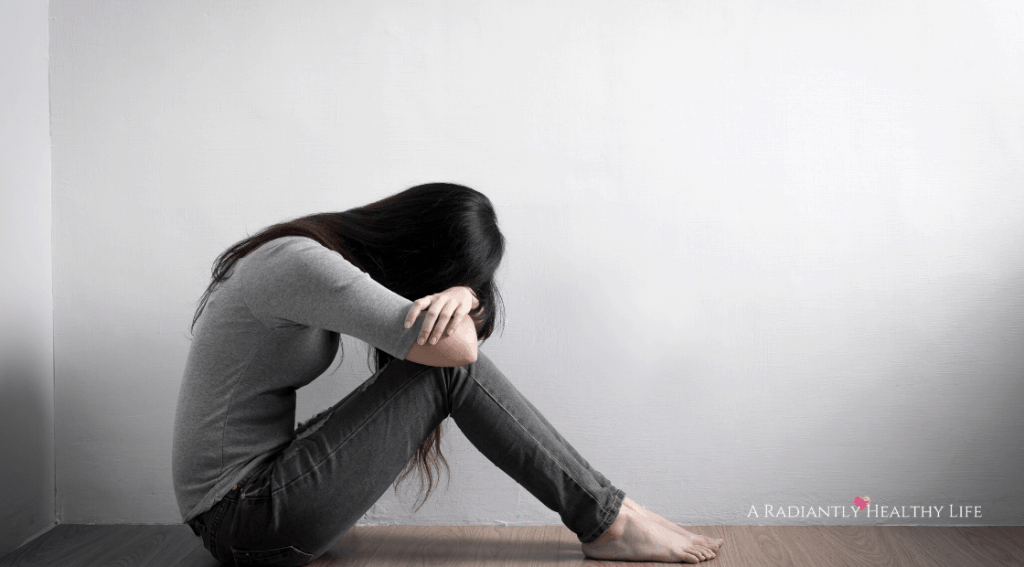
Wow, that is a great list! I haven’t ever thought of some of these things as being related to anxiety/depression.
I’m glad you found it helpful, Ashley!
Very good list! I struggle with anxiety and have found that increasing my vitamin d levels makes a huge difference year-round!
Hi Jessica,
So glad you found something that helps your anxiety! Vitamin D levels are definitely a factor for many people.